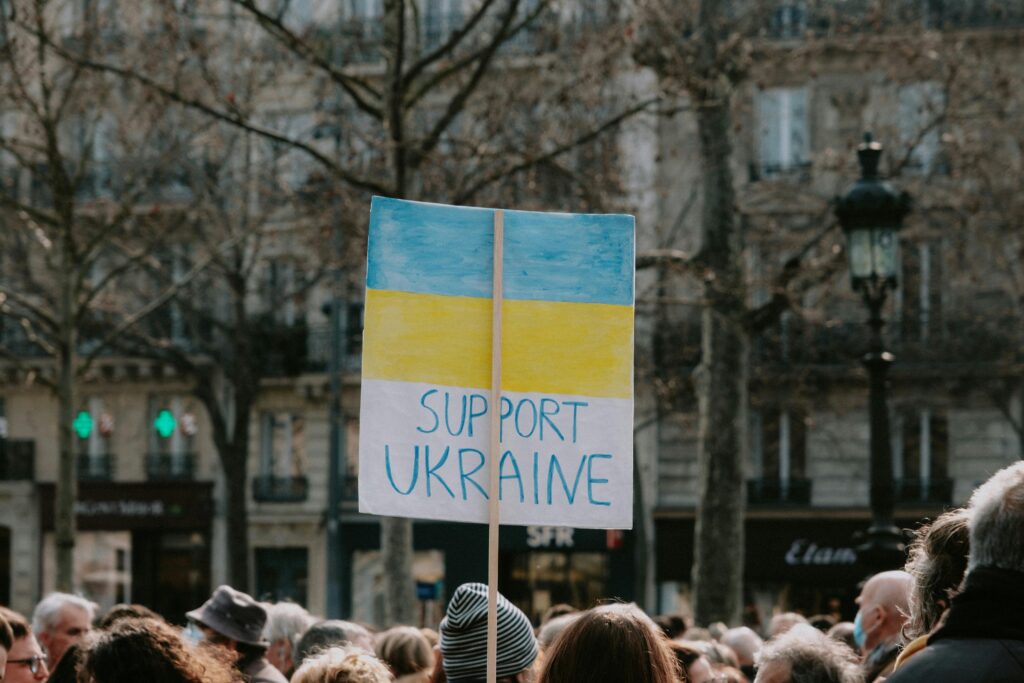Trump’s Threat to Cut Ukraine Aid Raises Concerns in the EU
With President-elect Donald Trump pledging to reduce U.S. aid to Ukraine and end the war swiftly after taking office, European leaders are growing increasingly concerned about the future of transatlantic support for Ukraine. The potential cut in U.S. assistance could severely impact Ukraine’s defense efforts. In response, the EU is working to preserve U.S. support, linking it to broader geopolitical concerns, particularly regarding China.
Trump’s campaign promise to end the war quickly has triggered fears in Europe that Kyiv might face territorial concessions. Additionally, the EU is now focusing on aligning Ukraine’s defense with U.S. interests in countering global powers like China.
EU Links Ukraine’s Defense to U.S.-China Rivalry
To secure continued U.S. support, European officials are emphasizing the connection between Ukraine’s defense and the broader U.S.-China rivalry. Kaja Kallas, the EU’s incoming High Representative for Foreign Affairs, argued that the U.S. should not only focus on China’s growing influence but also continue backing Ukraine in its fight against Russian aggression.
She pointed to the increasing cooperation between Russia, China, Iran, and North Korea, noting that Chinese technology is being used by Russia in its military efforts. The EU asserts that supporting Ukraine is essential not only for European security but for limiting the influence of authoritarian powers worldwide.
Von der Leyen: Russia’s Threat is Global
European Commission President Ursula von der Leyen echoed Kallas’ message, stressing that Russia’s actions pose a threat not just to Europe, but to global security. “Russia is a threat to global security,” von der Leyen stated, highlighting the use of Chinese and Iranian technologies by Russia on the battlefield in Ukraine.
Von der Leyen argued that the security of Europe, the U.S., and the Indo-Pacific region are interconnected, and that a unified, global response to Russia’s aggression is critical. The EU’s message is clear: continued U.S. support for Ukraine is a key component of a broader strategy to maintain global stability.
Kallas to Lead EU’s Strategy for U.S.-EU Cooperation
Kaja Kallas, who is set to take office in December, is expected to lead the EU’s efforts to strengthen transatlantic relations and ensure continued U.S. support for Ukraine. Experts suggest that Kallas will pursue a “transactional approach,” aligning the EU’s policies more closely with U.S. priorities, particularly regarding China, to secure ongoing support for Ukraine.
As the geopolitical landscape evolves, Kallas will likely focus on deepening cooperation with the U.S. on global security issues, including the defense of Ukraine. By linking support for Ukraine to shared strategic interests, the EU hopes to ensure that Ukraine remains a priority on the U.S. agenda.
Key Takeaways:
- Trump’s Threat to Ukraine Aid: Trump’s vow to cut U.S. assistance to Ukraine has raised concerns in Europe about the future of transatlantic support.
- Strategic Link to U.S.-China Rivalry: The EU is framing Ukraine’s defense as part of a larger global strategy to counter China and authoritarian regimes.
- Global Security Focus: EU leaders emphasize that Russia’s aggression is a threat to global security, not just Europe.
- Kallas to Guide EU Strategy: Kaja Kallas is expected to drive efforts to align EU policies with U.S. priorities, particularly regarding China, to ensure continued support for Ukraine.
